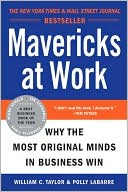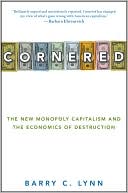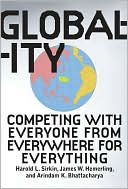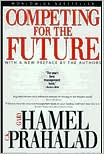The New Global Economy and Developing Countries: Making Openness Work
Policy makers in the developing world are grappling with new dilemmas created by openness to trade and capital flows. What role, if any, remains for the state in promoting industrialization? Does openness worsen inequality, and if so, what can be done about it? What is the best way to handle turbulence from the world economy, especially the fickleness of international capital flows?\ In The New Global Economy and Developing Countries Dani Rodrik argues that successful integration into the...
Search in google:
Policy makers in the developing world are grappling with new dilemmas created by openness to trade and capital flows. What role, if any, remains for the state in promoting industrialization? Does openness worsen inequality, and if so, what can be done about it? What is the best way to handle turbulence from the world economy, especially the fickleness of international capital flows? In The New Global Economy and Developing Countries Dani Rodrik argues that successful integration into the world economy requires a complementary set of policies and institutions at home. Policy makers must reinforce their external strategy of liberalization with an internal strategy that gives the state substantial responsibility in building physical and human capital and mediating social conflicts. Booknews This study essentially argues that policymakers must reinforce their external strategy of liberalization with an internal strategy that gives the state substantial responsibility in building physical and human capital and mediating social conflicts. Distributed by Johns Hopkins. Annotation c. Book News, Inc., Portland, OR (booknew.com)
ForewordExecutive Summary1Ch. 1Introduction5Ch. 2Openness in Perspective23Ch. 3Investment Strategies43Ch. 4Managing Turbulence in the World Economy67Ch. 5Is Africa Different?103Ch. 6Summary and implications135Appendix154References157About the Author166About the ODC167Board of Directors168
\ International Herald Tribune\ - William Pfaff\ Dani Rodrik argues that developing nations should not sign globalizing international agreements without participation and agreement by broad social groups within their countries, and says there should be solid evidence—not ideological incantations—to demonstrate that accepting external economic disciplines will actually be good for a country.\ \ \ \ \ \ Journal of Development Studies\ - Christopher Tsoukis\ Highly informative, thought-provoking, and entertaining. Indeed, it is a must for anybody, policy-maker or theorist, who aspires to think about the economic effects of globalization.\ \ \ \ Washington PostRodrik questions the value to developing countries of increasing economic integration, of ever-expanding trade and capital flows. Openness is not essential to economic growth, he argues. It's likely to widen inequality within countries. And, as recent events demonstrate, it leaves developing nations vulnerable to debilitating financial shocks... It's a seductive argument, and it's right in many particulars.\ \ \ \ \ \ International Herald TribuneDani Rodrik argues that developing nations should not sign globalizing international agreements without participation and agreement by broad social groups within their countries, and says there should be solid evidence—not ideological incantations—to demonstrate that accepting external economic disciplines will actually be good for a country.\ — William Pfaff\ \ \ \ \ \ Journal of Development StudiesHighly informative, thought-provoking, and entertaining. Indeed, it is a must for anybody, policy-maker or theorist, who aspires to think about the economic effects of globalization.\ — Christopher Tsoukis\ \ \ \ \ \ Washington PostRodrik questions the value to developing countries of increasing economic integration, of ever-expanding trade and capital flows. Openness is not essential to economic growth, he argues. It's likely to widen inequality within countries. And, as recent events demonstrate, it leaves developing nations vulnerable to debilitating financial shocks... It's a seductive argument, and it's right in many particulars.\ \ \ \ \ \ International Herald TribuneDani Rodrik argues that developing nations should not sign globalizing international agreements without participation and agreement by broad social groups within their countries, and says there should be solid evidence—not ideological incantations—to demonstrate that accepting external economic disciplines will actually be good for a country.\ — William Pfaff\ \ \ \ \ \ Journal of Development StudiesHighly informative, thought-provoking, and entertaining. Indeed, it is a must for anybody, policy-maker or theorist, who aspires to think about the economic effects of globalization.\ — Christopher Tsoukis\ \ \ \ \ \ BooknewsThis study essentially argues that policymakers must reinforce their external strategy of liberalization with an internal strategy that gives the state substantial responsibility in building physical and human capital and mediating social conflicts. Distributed by Johns Hopkins. Annotation c. Book News, Inc., Portland, OR (booknew.com)\ \








